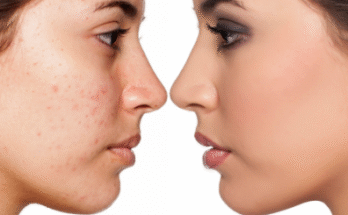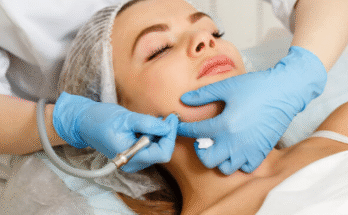Acne is one of the most common skin concerns in the world, yet it is surrounded by countless myths and misconceptions. Many people who experience acne often feel frustrated because of the conflicting advice they hear from friends, social media, or even well-meaning family members. Unfortunately, these myths can make acne worse or prevent people from getting the right treatment. Understanding what truly causes acne and how to care for your skin is the first step toward clearer, healthier skin. Let’s separate fact from fiction and uncover the truth behind some of the most common acne myths.
Myth 1: Acne Only Affects Teenagers
It’s true that acne is common during the teenage years because of hormonal changes, but it can affect people at any age. Many adults continue to experience breakouts well into their 20s, 30s, and even 40s. Adult acne often has different triggers, such as stress, hormonal fluctuations, skincare products, or diet. For example, women may notice acne flare-ups during certain phases of their menstrual cycle or due to hormonal imbalances. The idea that acne is only a teenage problem can make adults feel embarrassed or confused about why they still have breakouts, but it’s entirely normal. The good news is that acne can be managed at any age with proper care and guidance.
Myth 2: Poor Hygiene Causes Acne
One of the most persistent myths is that acne comes from having dirty skin or not washing your face enough. In reality, acne isn’t caused by dirt. It’s caused by a combination of factors such as excess oil production, clogged pores, bacteria, and inflammation. Washing your face too often or using harsh cleansers can actually make things worse by irritating your skin and stripping away its natural protective oils. The best approach is to cleanse your face gently twice a day with a mild, non-comedogenic cleanser. Over-washing or scrubbing aggressively will not remove acne but can lead to redness, dryness, and more breakouts.
Myth 3: You Should Pop Pimples to Get Rid of Them
It’s tempting to pop a pimple, especially when it appears right before an important event. However, popping pimples can do more harm than good. When you squeeze a blemish, you can push bacteria and oil deeper into the skin, which increases inflammation and can lead to scarring. Instead of picking at your skin, try applying a topical acne treatment that contains ingredients like benzoyl peroxide or salicylic acid. These ingredients help reduce bacteria and unclog pores safely. If you have persistent acne, it’s best to consult a dermatologist who can recommend the right treatment for your skin type and condition.
Myth 4: Makeup Causes Acne
Many people believe they must stop wearing makeup to prevent acne, but that isn’t always true. While some products can clog pores and worsen breakouts, there are plenty of makeup options that are safe for acne-prone skin. The key is to choose products labeled as “non-comedogenic,” which means they are designed not to block pores. It’s also important to remove makeup thoroughly before going to bed and to clean makeup brushes regularly. Makeup itself isn’t the problem; it’s often the type of product or how it’s used that matters. With the right skincare routine and product choices, you can still enjoy makeup without worrying about worsening your acne.
Myth 5: Sun Exposure Helps Clear Acne
Some people think spending time in the sun will dry out pimples and make them disappear. While the sun might temporarily dry out oil and make acne seem less noticeable, it doesn’t actually heal acne. In fact, too much sun exposure can lead to skin damage, premature aging, and even worsen breakouts over time. UV rays can increase inflammation and cause post-acne marks to darken. The best way to protect your skin is to use a broad-spectrum sunscreen that’s non-comedogenic and formulated for acne-prone skin. Sunscreen is not your enemy—it’s an essential part of keeping your skin healthy and preventing long-term damage.
Myth 6: Diet Has Nothing to Do With Acne
For a long time, it was believed that diet and acne were unrelated, but newer research suggests that what you eat can play a role in how your skin behaves. While diet alone doesn’t cause acne, certain foods may trigger or worsen breakouts in some people. High-glycemic foods like sugary snacks, white bread, and sodas can increase blood sugar levels, which may contribute to excess oil production and inflammation. Dairy products, especially skim milk, have also been linked to acne in some studies. A balanced diet that includes fruits, vegetables, whole grains, and lean proteins can help support healthy skin. Drinking enough water and reducing processed food intake may also make a positive difference.
Myth 7: Acne Will Go Away on Its Own
Some people assume acne is just a phase and that it will eventually disappear without treatment. While mild acne might clear up over time, moderate to severe acne often needs consistent care and proper treatment. Ignoring acne can lead to scarring and emotional distress. There are many effective treatments available today, from topical creams and gels to oral medications and professional procedures like chemical peels or light therapy. Seeking help from a dermatologist can save you years of frustration and help you find a routine that works for your skin.
Myth 8: Natural Remedies Are Always Better
Natural remedies like tea tree oil, aloe vera, and honey can have soothing properties, but not all natural ingredients are safe or effective for every skin type. Some essential oils can irritate the skin or cause allergic reactions. “Natural” doesn’t always mean gentle, and “chemical” doesn’t always mean harsh. Many dermatologist-approved treatments are scientifically tested and proven to be safe and effective. The key is to choose products and ingredients that are suitable for your skin and to patch-test anything new before applying it to your entire face.
Myth 9: Acne Is Just a Cosmetic Issue
Acne doesn’t just affect how someone looks—it can also affect how they feel. Many people with acne experience low self-esteem, anxiety, or social withdrawal. It’s important to remember that acne is a medical condition, not a personal flaw or a reflection of hygiene or lifestyle. Talking to a healthcare provider or dermatologist can help you find the right treatment, and speaking openly about how acne makes you feel can be a valuable step toward emotional well-being. Everyone deserves to feel confident in their skin.
Myth 10: Once Acne Clears, You Don’t Need to Do Anything Else
Even after acne improves, your skin still needs care to stay balanced and healthy. Stopping treatment too soon can cause breakouts to return. Maintaining a simple routine with gentle cleansing, hydration, and sun protection can help prevent future flare-ups. Using non-comedogenic products and continuing prescribed treatments as directed by your dermatologist will support long-term results. Skincare isn’t just about fixing a problem—it’s about nurturing your skin’s ongoing health.
Final Thoughts
Acne is a complex condition influenced by genetics, hormones, lifestyle, and skincare habits. Believing in myths can make managing it more difficult and discouraging. By understanding the real causes of acne and focusing on evidence-based care, you can take control of your skin health. Remember, everyone’s skin is different, and what works for one person may not work for another. With patience, consistency, and professional guidance when needed, clearer skin is absolutely possible. Let go of the myths, treat your skin kindly, and focus on what truly helps it heal and thrive.

